The Old Broke Rancher Remembers Inviting A Hobo To Dinner in Lewistown, 1962

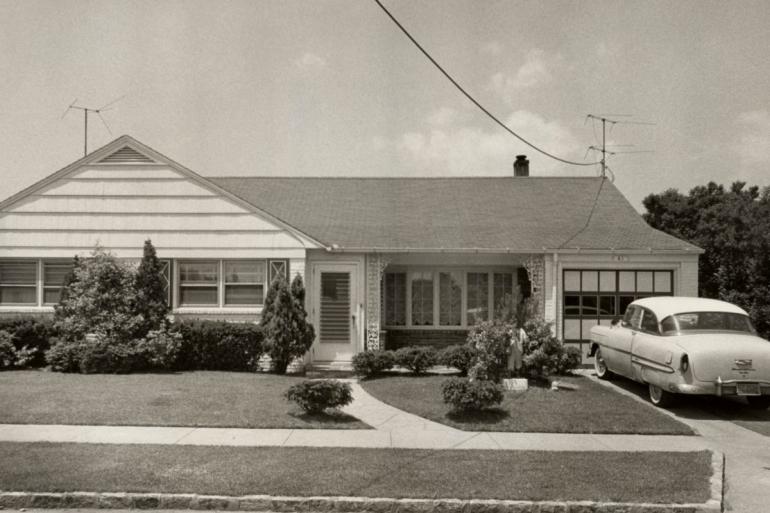
Growing up in Lewistown, Montana, in the 1950s and '60s, I often considered how to make my way in the world.
Now, I loved childhood. And if I could have rigged it so that I stayed in that blissful state of innocence forever, I would have, like some kind of filthy, coverall-wearing Peter Pan. But I knew that eventually I'd have to give up childish things, as the Good Books says, and become a man. So I started to look around at some of these adults, to see how well they've managed their grown-up careers.
Even at that age, I understood that a man often asked another what he did for a living upon meeting someone new.
But it seemed to me that living kind of took care of itself, as long as you weren't flattened by a truck, or mauled by a bear, or picked off by a masked outlaw with a Sharps rifle with an even sharper eye. Failing that, I reasoned at 10 years old, you still lived, no matter what one pretended to do in the meantime, and the more you lived, it seemed to me the older you got. In the meantime, what I couldn't work out was why so many adults did such incredibly boring things for their "living."
My neighborhood had a reasonable cross-section of professions for me to ponder on. We had the owner of an upholstery shop, a small grocery store, a hardware store, a banker, and a vacuum cleaner salesman. At 10, none of these much appealed to me. A bit more tempting, profession-wise, were the Fire Chief, who lived just a few blocks away, and the County Sheriff, another block down. There was also a successful "body man," or mechanic, across the alley. I thought maybe mechanic had some promise, if the cars you got to work on were hot.
Then, there were of course plenty of farmers and ranchers. At that tender age, I had yet to fully discern the differences between the two, which is to say that one plays in the dirt with really big toys, the other kicks a little dirt (crap, more like) and fixes fences. They wore slightly different boots, but the results are similar. Hard work, and low pay.
There were no kings or queens, on my side of tracks anyway.
Speaking of my side of tracks, we lived near the Southern edge of Lewistown, very near the Milwaukee St Paul and Pacific Railroad tracks. I explored the area thoroughly on my bike.
Lewistown was not a huge rail hub. There were two rail companies, the Great Northern and the Milwaukee. Back then, the trains rocked and rolled right by my house, less than 250 feet to the tracks, at least the Milwaukee did, weekly. Even at that time, a hobo catching the wrong train out of Harlowton might spend the week in Lewistown, waiting for the next local to run.
So, naturally, I shortly found the hobo jungle and decided that I wanted to be a hobo when I grew up.
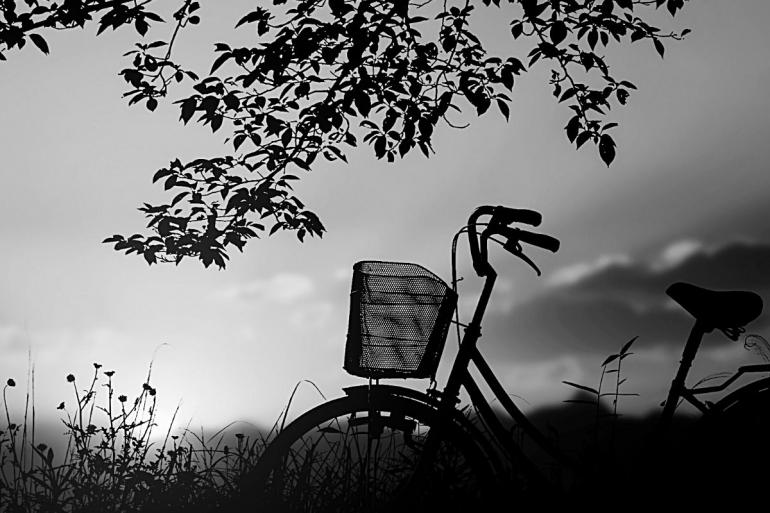
The occupants of the jungle camp located on my side of town became my buddies because I was a trout fisherman who hated the taste of trout. If I brought them home, Mom would fry them and make me eat them. Since the jungle was on my beaten path home from fishing in Spring Creek, it provided the perfect way to dump the fish. Any eater of trout was a friend of mine, and, best of all, I did not have to clean them that way.
So the hobos and I reached an easy arrangement: I'd give them my fish, and they'd tell me stories about riding the rails and some of the things they'd seen. They weren't always pretty stories, or strictly appropriate for a young boy's ears, but they did serve as a sort of loose education in the nature of the world. I heard, therefore, about the mythical Cannonball, the Platonic ideal of the hobo train - fast, and it goes everywhere. I heard how they developed their own secret language in order to communicate amongst other gentlemen of the road with impunity, the necessity for secrecy producing such irresistible codewords as a "bale of straw" for a blonde woman, or "cinder dick" for railroad police that road on the freights.
I often brought a hobo home. Mother was, as she was fond of pointing out, a "Christian Woman" and so would never turn away any person in need. She'd would fix them up with a little sack of leftovers that would likely have hunks of a pie, cookies, and cakes, and a generous sandwich made on homemade bread spread with fresh ranch butter, etc. They always left, hat in hand, the bag of food in the other, giving me a wave or a wink or a thumbs up on their way out.
One time, however, I went far enough to test the limits of Mom's Christian charity, which I had previously estimated as infinite and without bottom. But, as it turns out, having hobos over to stand in the yard or at the backdoor while a sack was prepared for them was one thing. But to have one sit in the house, eating with the good cutlery, smoking a cigarette across the table from Dad, could be another entirely.
The man's name was Clarence Dorsey. Like most of the residents of the hobo camp, he appeared suddenly and left the same way, catching the train West to parts unknown. We became friends because his lust for trout was in exact proportion to my distaste for it. He carried with him a small cast iron pan in a bag he'd fashioned out of sackcloth, and I saw him cook up five or six of them over the week, or so he was in town.
"You're a good fisherman, boy. I knew a man almost as good at fishing, once. I saw him pick eight or nine roach right out of a stream in France, one after another."
I knew that sometimes hobos said things that didn't make sense, like fishing for roaches, which were clearly a bug and not a fish. Or fishing in France, which didn't sound like something they did over there, as far as I knew. When I thought of the French, I thought about frog legs, cheesy singers, the guillotine, and Brigitte Bardot. I was only dimly aware of the latter, having seen her in a magazine once and been strangely compelled in a way I wouldn't recognize as sexual attraction until a few years later.
At any rate, I tried to picture her fishing, and couldn't do it.
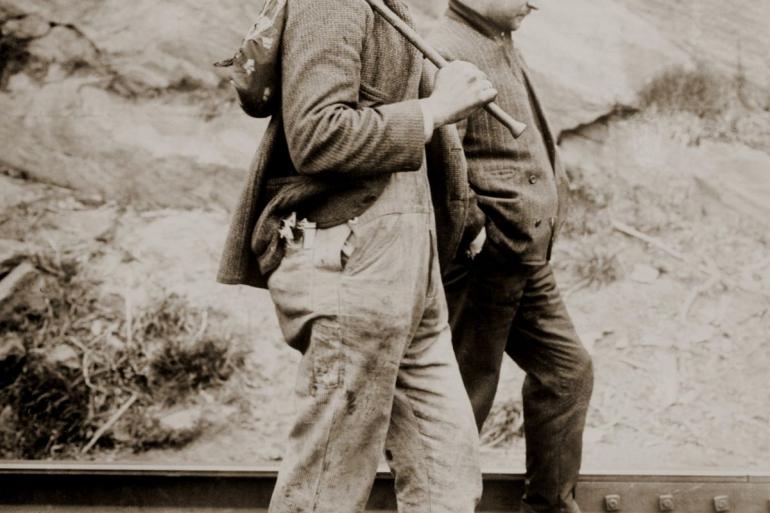
Clarence was one of the older hobos I'd met - a lot of them seemed ancient to a young boy, but I knew he was capital-O old, somewhere in his seventies. It seemed to me that hobo-ing was a profession in which most retired in their fifties or so because, despite a lot of bushy white beards and white hair, you didn't see that many true old-timers.
Perish the thought that I may be older now than he was then. What a strange thing, time.
He also looked sharp, for a man of his persuasion, wearing a weathered but well-fitting blazer and a white shirt underneath. His pants, though frayed, were business-like duck trousers "starched" extra-firm by a layer of road dust. He kept his grey beard trim, and the hair on the top of his head was long gone, although an abbot's tonsure of grey, curly nap remained under his hat. He had a grandfatherly air to him, and I listened, rapt, as he told me about being in Chicago in the 1920s, southern California in the 1930s, and just about everywhere else ever since.
One day, I said, "why don't you come over for dinner, Mr. Dorsey? I'll catch some trout and ask Mom to make it." It was a sacrifice I was willing to make.
"Boy, that's the nicest thing anyone's asked me to do in years," he said. "I'd be honored. You just ask your Ma and let me know. Give me an hour's notice to wash up."
So I rode my bicycle back to the house and walked into the kitchen, where Mom was chopping up some apples to put in a pie.
"Mom, I invented a man over for Christian charity.'
"Good, son. I'll make him a sandwich."
"Oh, well, a sandwich. Well, Mom, the thing is..."
She turned and looked at me, narrowing her eyes behind her cat-eye glasses.
I winced. "Well, I asked him over for dinner dinner."
Her frown deepened.
"I said I'd catch some trout, and you'd cook it. He loves trout."
As my older sister Elaine, said, "you're in big trouble, you little snot."
Maybe so, but I thought once Mom and Dad met him they'd like him, too.
To her credit, she agreed to fulfill my promise as if it were her own obligation, but she made sure to clarify to me, at length, the difference between "Christian charity" and having a guest for dinner. Jesus required that we feed the hungry, but he didn't say it had to be at the dinner table.
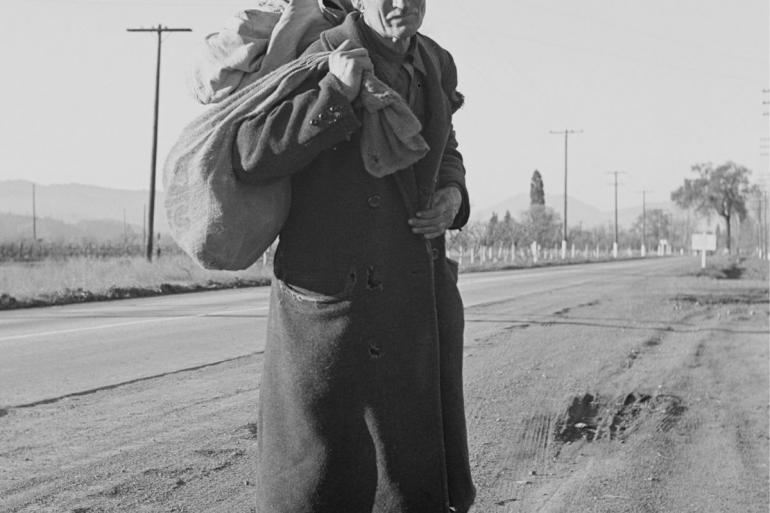
Mr. Dorsey arrived at dinner in a freshly washed (and indeed, still somewhat wet with creek water) blazer. He also carried a hand-picked bouquet of bluebells, crocus, shooting stars, wild strawberry, and dandelions, which he handed to Mom. I think she was at least a little charmed by that since she put them in a vase and set them on the table. But she was visibly nonplussed by the man's odor, which his valiant attempt at bathing had only blunted. Frankly, it was part of what I admired about the man. I intended to smell very similar as an adult.
Mom prepared the trout as she always did, fried in a pan with salt, pepper, and a little lemon juice. She also made scalloped potatoes, a fresh loaf of her bread, and the aforementioned apple pie. Clarence ate like a man possessed, licking the juices off of his fingers before digging back in with renewed fervor. And all through that, he made appreciative noises in the back of his throat.
"I haven't eaten that good in years and years. Thank you, ma'am."
She nodded with a smile and got up to clear his plates to make room for the pie.
Dinner itself was pretty quiet, except for small talk about how good the food was, etc. Now Dad cleared his throat and spoke. "Gary said you had a healthy appreciation for fish. Can't say the same for the boy here," he said, nodding towards me, even though I had politely choked down the wretched, fish-tasting mess of bones.
"Yes, sir," he said while reaching into his bag for a leather pouch which he set on the table and opened, taking a paper and a pinch of tobacco and rolling up a cigarette. He lit it with a match before realizing that he may have committed a gaffe.
"May I?" he asked.
"Sure, go ahead," Dad said, even though Mom's eyes bugged out of her head when she returned to the scent of cigarette smoke in her house.
Eager to change the subject, I chirped up. "Mr. Dorsey knew an exterminator in France who killed roaches all day!"
Mom and Dad looked at Clarence, unsure if he was sane or not, and nodded politely. "Oh? That right?"
"Well, your son's got some of the details wrong. He was fishing for roach in a stream. But it was France, yes."
"What did you do over there," Mom asked with perhaps a note of skepticism as she handed him a plate of pie.
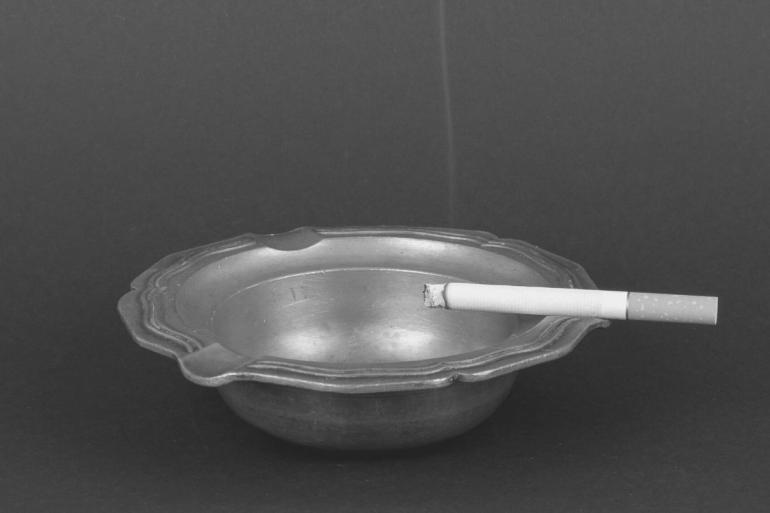
"Well, Ma'am, I served in the army. I enlisted during the Great War. The man I knew was fishing a stream near Cantigny after we fought in a battle."
My mouth dropped open, and I regarded Mr. Dorsey, who I had already admired for his lifestyle, with a new sense of awe.
Dad, who also knew a little something about what war was like, went over the cupboard and grabbed a bottle of whiskey. It was usually reserved for special guests' after-dinner tipple, or those occasions when Dad and his buddies blew off a little steam and played cards. He poured a finger or two and set it down in front of the old man.
"To fallen comrades and old battles."
The old man looked up at my father and nodded. "Did you serve too?"
"Yes, sir. Under Patton."
"Now he was a soldier," Dorsey said, raising his glass.
The men regarded one another quietly from across the table as they sipped their drinks.
"Do you mind if I ask," Dad said, leaning forward, elbows on the table, "what happened after?"
"You mean why I don't have a home, a wife, a car, all of that?"
Dad nodded. I noticed Mom and Elaine were interested too. Even little Neal was rapt if nothing else by the novelty of having a hobo at dinner.
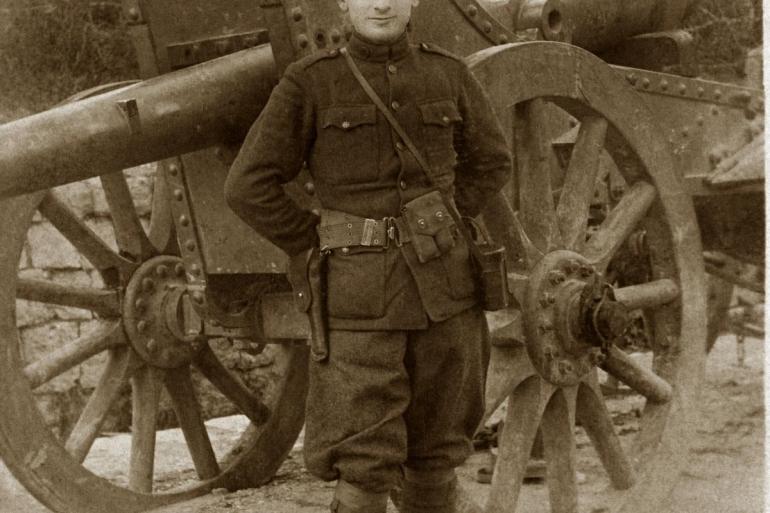
The old man screwed up his face as if in deep thought, a forkful of pie halfway to his waiting mouth while he decided on how to answer. "Mr., I'm trying to think of an answer that might satisfy you when I've been wondering the same thing almost my whole life."
He rolled another cigarette before he began to speak. By then, Mother had sat back down at the table. Where she had reacted to the first cigarette with disgust, she now simply pushed a saucer to him for an ash tray. I think she was eager as any of us to hear the answer.
"I don't like to think about the war, you know. You might be the same way," he said, nodding his chin towards my father, "although I don't want to speak for you, sir. I reckon there isn't much point to thinking about it. It was a long time ago, it's over, and a lot of it isn't worth remembering anyway. I could tell stories. I remember a lot of horrible things happening. But I don't see what anyone gains from talking about them anymore. But that feller I told you about? The one who was as good a fisherman as I ever met? He died over there in a trench, a few months after that. He popped his head up over the side after it'd been quiet a minute, and somebody over there got a bead on 'im. But me, I don't like to remember that. I like to remember him with a big string of roach, smiling like a fool."
"I guess what I'm trying to say is that there's some about the war that I do like to think about. I had a lot of friends over there, too. I saw parts of the world I never thought I'd see when I was growing up in a farm in Iowa. I'll tell you that much. And I guess when I came back to the States in 1918, it didn't feel right to just stay where I was, not after I'd seen all I'd seen. So I started riding rails to keep moving. Served as a merchant marine for a while. Came back for more rails." He paused to pluck a bit of tobacco off of his lip. "I guess I just never did want to stay put again after that."
My father watched the old man for a long moment while we examined our father's face to know how to react to the man's story. It didn't make much sense to me then, but I hadn't seen much of the world yet. And I never would see as much of it as they did - I haven't even left the continent except for a trip to Hawaii decades later.
Much less served in a war.
Part of me is glad because I'd managed to live a life of peace and (relative) prosperity, although my moniker isn't the Old Rich Rancher, is it? Another part of me knows that those two men, both long dead now, were called upon to do things that I can only imagine, no matter how much I read or watch films and documentaries. They were so similar, in their way, that despite their differences in age and lifestyle, they understood one another that night.
Another small shot of whiskey followed - this time, the toast was Clarence's. He said, "to Montana, the prettiest state I've seen yet, and with some of the most hospitable folks. Not to mention," he said, tousling my hair, "some of the finest trout fisherman." My Mom pressed a rucksack full of vittles in his hand, and my Dad set a hand on his shoulder.
"Thanks for coming to dinner, Old Timer. Next time you come back this way, stop by again. The boy'll catch some more trout."
I winced at the idea of more trout, but I'd suffer through it if I had to. My brother and sister and I waved as the man left, but Dad did something I only saw him do a handful of other times.
He saluted.
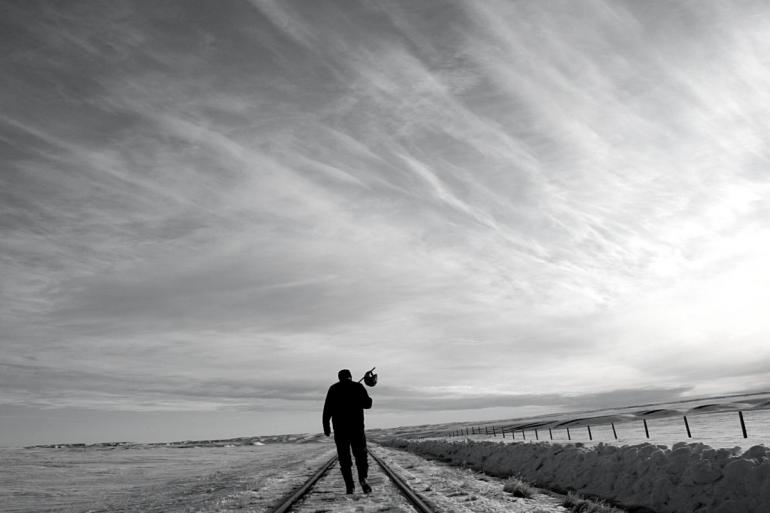
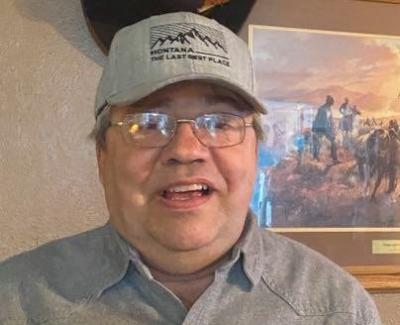
Gary Shelton was born in Lewistown in 1951 and has been a rancher, a railroader, a biker, a teacher, a hippie, and a cowboy. Now he's trying his hand at writing in the earnest hope that he'll make enough at it to make a downpayment on an RV. Hell, scratch that. Enough to buy the whole RV. He can be reached at [email protected] for complaints, criticisms, and recriminations. Compliments can be sent to the same place, but we request you don't send them - it'll make his head big.
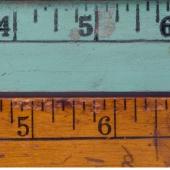
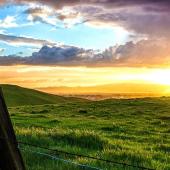

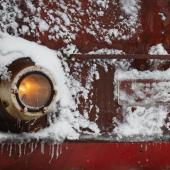




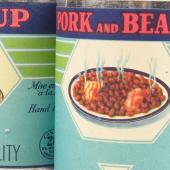
I grew up in Lewistown in the 50s. Great place to grow up .
Lots of memories. I lived near city hall.
- Reply
Permalink